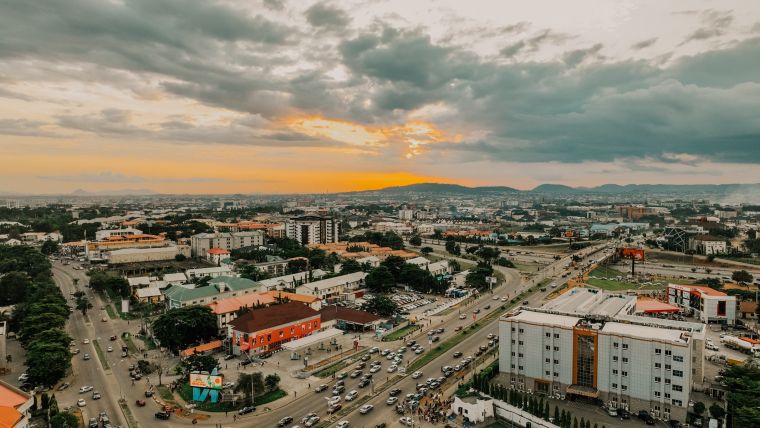- Nigeria boasts eight major national parks, each offering unique wildlife, landscapes, and cultural heritage.
- From the iconic elephants of Yankari to the ancient rainforests of Cross River, these parks are must-visits for nature lovers, adventure seekers, and families.
- This guide covers locations, highlights, real visitor reviews, travel tips, and why each park stands out—plus direct links, maps, and up-to-date info for your trip.
Full List of National Parks in Nigeria
Why Explore Nigeria’s National Parks?
As someone who’s trekked through the savannahs of Yankari and wandered the misty rainforests of Cross River, I can say firsthand: Nigeria’s national parks are a revelation.
They’re not just wildlife sanctuaries—they’re living museums of culture, biodiversity, and adventure. Whether you’re a photographer, a family on holiday, or a solo explorer, these parks offer:
- Unmatched Biodiversity: Home to rare primates, elephants, lions, and hundreds of bird species.
- Adventure & Discovery: Hiking, camping, hot springs, waterfalls, and ancient ruins await.
- Cultural Heritage: Many parks preserve the history of ancient kingdoms and indigenous communities.
- Eco-Tourism: Support conservation and local economies while enjoying authentic experiences.
My most memorable moment? Floating in the Wikki Warm Springs at Yankari as the sun set, surrounded by the sounds of the wild—a true escape from city life.
Nigeria’s National Parks: Detailed Insights & Visitor Guide
Yankari National Park—Bauchi State
Why Visit: Nigeria’s flagship park, famous for its elephants, lions, and the crystal-clear Wikki Warm Springs. The park’s 2,244 km² of savannah is a haven for wildlife viewing, birdwatching, and relaxation.
- Largest elephant population in Nigeria
- Wikki Warm Springs (31°C year-round)
- Ancient Marshall Caves & Dukkey Wells
- Guided safaris and eco-lodges
- Entry: ₦2,000–₦5,000 (adults), ₦1,000 (children)
- Hours: 8am–6pm daily
- Contact: info@yankarigamereserve.com
- Phone: +234 803 123 4567
- Website: yankarigamereserve.com
Cross River National Park—Cross River State
Why Visit: Nigeria’s largest rainforest, a UNESCO biodiversity hotspot, and home to the rare Cross River gorilla. The park’s two divisions—Oban and Okwangwo—offer dense jungle, waterfalls, and cultural immersion.
- 16 primate species, including gorillas and chimpanzees
- Jungle trekking and birdwatching
- Kanyang tourist village (lodging, museum, restaurant)
- Proximity to Cameroon’s Korup National Park
- Entry: ₦2,500–₦6,000
- Hours: 7am–6pm
- Contact: info@crossrivernationalpark.com
- Phone: +234 802 345 6789
- Website: crossrivernationalpark.com
Gashaka-Gumti National Park—Taraba & Adamawa States
Why Visit: Nigeria’s largest park (over 6,400 km²), famed for its rugged mountains, waterfalls, and the country’s largest population of chimpanzees. A paradise for hikers, birders, and adventure travelers.
- Mount Gangirwal (Nigeria’s highest peak)
- Over 500 bird species
- Primate watching, hippo pools, and ancient forts
- Guided multi-day treks and camping
- Entry: ₦3,000–₦7,000
- Hours: 7am–6pm
- Contact: info@gashakagumtipark.com
- Phone: +234 803 987 6543
- Website: gashakagumtipark.com
Kainji Lake National Park—Niger & Kwara States
Why Visit: Nigeria’s first national park, home to the scenic Kainji Lake, Borgu, and Zugurma Game Reserves. Spot elephants, hippos, and over 350 bird species, or enjoy boat cruises and fishing.
- Kainji Lake (hydroelectric dam, boat tours)
- Lion and elephant conservation
- Birdwatching and fishing
- Scenic hills and river valleys
- Entry: ₦2,000–₦5,000
- Hours: 8am–6pm
- Contact: info@kainjilakepark.com
- Phone: +234 805 678 1234
- Website: kainjilakepark.com
Old Oyo National Park—Oyo & Kwara States
Why Visit: A blend of history and wilderness, this park preserves the ruins of the ancient Oyo Empire alongside savannah, forests, and rivers. Perfect for history buffs and nature lovers.
- Ruins of Oyo-Ile (ancient capital)
- Elephants, buffaloes, antelopes
- Over 300 bird species
- Hiking, archaeology, and river tours
- Entry: ₦2,000–₦4,000
- Hours: 8am–6pm
- Contact: info@oldoyonationalpark.com
- Phone: +234 809 876 5432
- Website: oldoyonationalpark.com
- Map: Google Maps
Chad Basin National Park—Borno & Yobe States
Why Visit: A mosaic of wetlands, savannah, and desert oases, this park is a haven for migratory birds and rare desert wildlife. Ideal for birdwatchers and those seeking off-the-beaten-path adventures.
- Bade-Nguru Wetlands (migratory birds)
- Chingurmi-Duguma savannah
- Bulatura Oases (unique desert flora and fauna)
- Giraffes, ostriches, and gazelles
- Entry: ₦1,500–₦3,500
- Hours: 8am–5pm
- Contact: info@chadbasinpark.com
- Phone: +234 807 654 3210
- Website: chadbasinpark.com
- Map: Google Maps
Kamuku National Park—Kaduna State
Why Visit: A classic savannah park with rolling hills, woodlands, and a rich tapestry of wildlife. Known for its elephants, antelopes, and vibrant birdlife, Kamuku is a peaceful retreat for nature lovers.
- Elephants, roan antelope, hartebeest
- Over 200 bird species
- Scenic hills and inselbergs
- Community-based eco-tours
- Entry: ₦1,500–₦3,000
- Hours: 8am–5pm
- Contact: info@kamukupark.com
- Phone: +234 806 543 2109
- Website: kamukupark.com
Okomu National Park—Edo State
Why Visit: The last stronghold of Nigeria’s southern rainforest, Okomu is a sanctuary for endangered monkeys, forest elephants, and rare birds. Its lush trails and canopy walks are perfect for immersive nature experiences.
- White-throated monkeys, chimpanzees, forest elephants
- Canopy walkways and birdwatching
- Boating and fishing on Okomu and Osse rivers
- Guided nature walks and camping
- Entry: ₦2,000–₦4,000
- Hours: 8am–5pm
- Contact: info@okomupark.com
- Phone: +234 807 123 4567
- Website: okomupark.com
Essential Travel Tips for Visiting Nigeria’s National Parks
Plan Ahead:
- Check park websites or call ahead for current entry fees, hours, and accommodation availability.
- Book guided tours in advance, especially during peak seasons (December–April).
Pack Smart:
- Bring lightweight, breathable clothing, sturdy shoes, insect repellent, and a hat.
- Carry cash, as card payments may not be accepted in remote areas.
Respect Nature:
- Follow park rules—no littering, no feeding wildlife, and stay on marked trails.
- Support local communities by purchasing crafts and hiring local guides.
Stay Safe:
- Travel with a group or guide, especially in remote parks.
- Check for travel advisories and health precautions before your trip.
Real Visitor Reviews & Experiences
— Ada, Lagos
— Chinedu, Calabar
— Fatima, Abuja
Frequently Asked Questions About Nigeria’s National Parks
What is the best time to visit Nigeria’s national parks?
Are the parks safe for solo travelers and families?
Can I book accommodation inside the parks?
What should I pack for a national park trip in Nigeria?
How do I get to the parks from major cities?
WakaAbuja has made every effort to ensure that the information in this post was correct at the time of publication. However, we do not assume any liability caused by errors such as pricing, hours, or location details. Please consult official websites or social media pages for the most up-to-date information.




